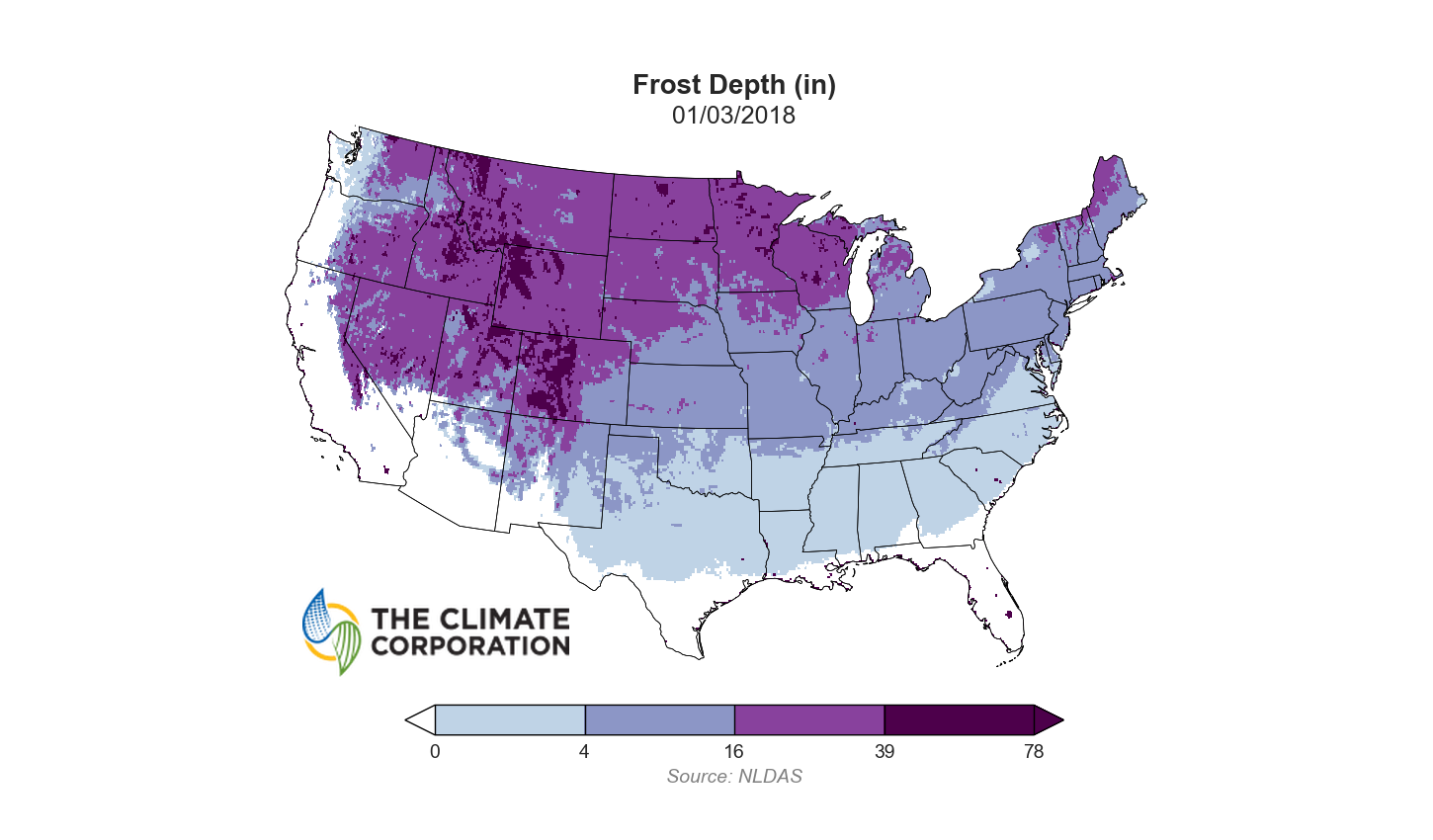Extreme Cold: The Impact of Cold Weather On Farming
January 8, 2018
Extremely cold temperatures have affected much of the central and eastern United States since late December. Persistent northerly winds out of Canada’s cold interior have transported reinforcing shots of arctic air southward causing thousands of record low temperatures east of the Rocky Mountains. One of the coldest temperatures recorded during this time was -45°F in Embarrass, Minnesota on Dec. 31.
Listen to the "The Impacts of Winter Weather with Jeff Massey " podcast now
Below is the departure from normal temperatures between Dec. 25 and Jan. 5 showing many areas of the upper Midwest more than 25°F below normal during this 12-day period. The Twin Cities in Minnesota had its coldest last week of December on record since 1886! Not even the southern U.S. was spared, with snow falling along the Gulf Coast and across Florida where the first significant snowfall since 1989 fell in Tallahassee.

What does cold weather mean for farming and field management?
Outside of the dangers and inconveniences extreme cold brings, there are agricultural implications. Winter wheat can be vulnerable, though the full extent of the impact on this year’s crop will not be known until later this spring. Below average snowfall across the wheat growing regions may have exacerbated the damage since snow can act as an insulating layer against extreme cold. Livestock producers are taking extra precautions as well. During this cold spell, they are making sure water sources are thawed and animals have adequate feed.
What do cold temperatures mean for field health?
Fortunately, extreme cold can also bring benefits to farmers and their fields by freezing the soil deep beneath the ground. Current frost depths in the image below are already exceeding 40 inches over parts of the upper midwest, with plenty more winter to go. A deep frost depth can benefit farmers in a variety of ways. The cold also helps keep fall-applied nitrogen from volatilizing during the winter so you experience reduced loss of this key input. The freeze/thaw cycle of water also can help soften soils and reduce compaction after the soils thaw, and with frost depth increasing this year, you may see some soil benefits as well. Finally, extreme cold and frozen soils can reduce the survival rate of some insects, suppressing insect pressure on crops during the following growing season.

Are there other ways the cold weather has personally affected your farming operation, either positively or negatively? Let us know by tagging @climatecorp on twitter!
About The Authors

Jeff Massey is the atmospheric science technical lead for Climate LLC. He has a Ph.D. in atmospheric science and has been with Climate for almost three years, focusing on delivering agronomically relevant weather information to the organization

Luke Samuel is the Commercial Product Director for Climate LLC and leads the Climate Field Product Specialist teams focused on product testing and training. Luke has been with Monsanto for 10 years, most recently as the Regional Agronomy Lead for the Minnesota and Wisconsin Region. He has a Ph.D in natural resource management from North Dakota State University.




